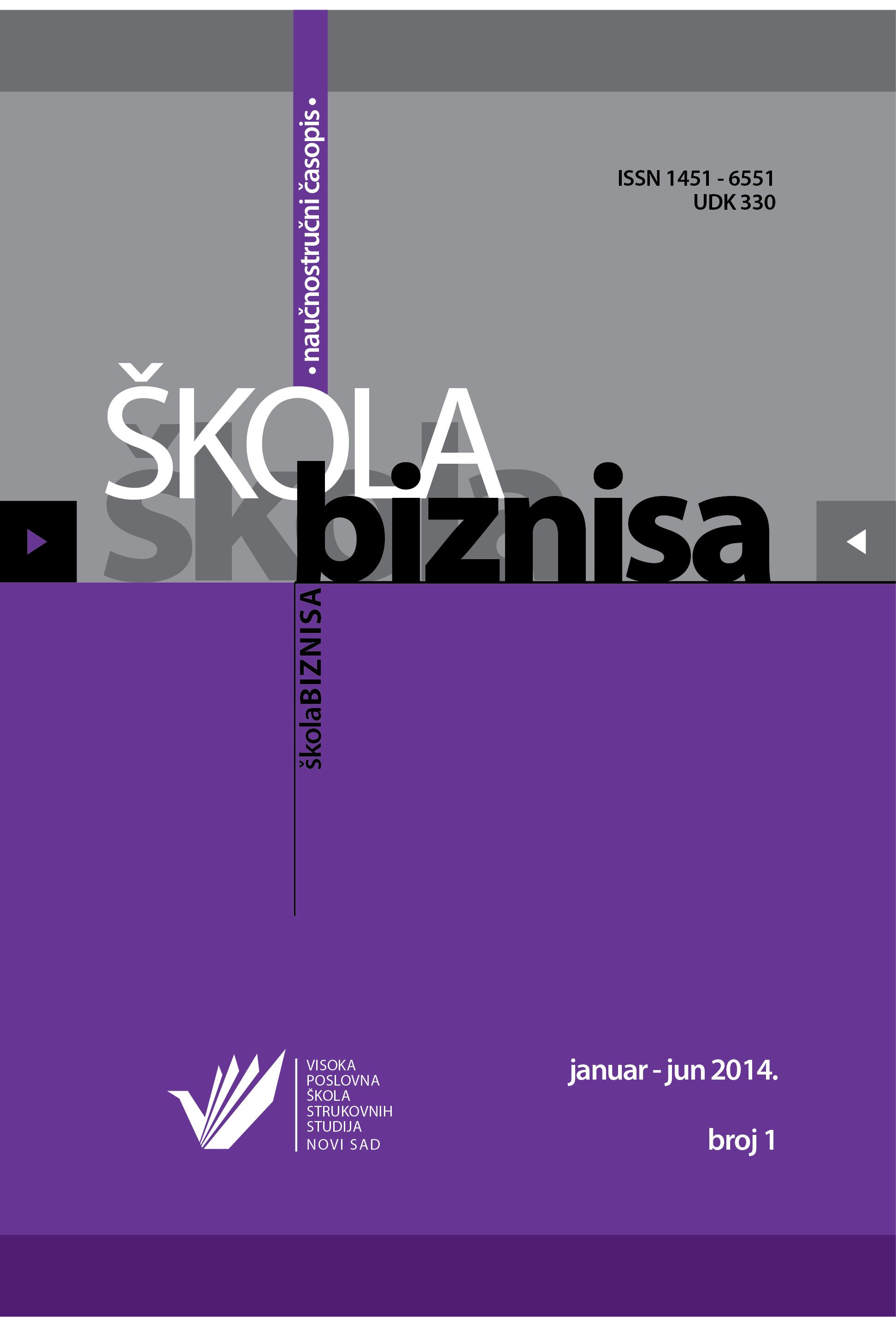INTERNATIONAL CONVENTIONS AND AGREEMENTS IN THE ECOLOGICAL AREA - IN LIGHT OF MODERN CIVILIZATION AND INTERNATIONAL TRADE
Abstract
A large number of authors examine the problem of environmental protection in their papers. The concept of sustainable development and intensive use of modern technology in order to overcome the environmental problems of modern civilization becomes an imperative. Theoretical engagement in ecological issues is not enough. It is necessary to implement ecological measures in practice and to spread environmental awareness. Modern science and social practice have interdependence of economy and ecology in their focus. The main direction of social change is movement from economic to ecological paradigm that involves an ethical responsibility to the current and future generations. There is a need to establish effective programs to protect the environment at the national and supranational level. Active international cooperation in the field of ecology has resulted in the formulation of a number of documents on environmental protection. This paper illustrates the importance of environmental protection and the necessity of implementing international conventions and agreements in the environmental field, with focus on their impact on international trade.
References
Carraro, C., & Siniscalco, D. (1998). International Institutions and Environmental Policy International environmental agreements: Incentives and political economy. European Economic Review, 42 (3–5), 561–572.
Divljak, D. (2012). Svetska trgovinska organizacija i višestrani međunarodni sporazumi o zaštiti životne sredine. Zbornik radova Pravnog fakulteta Novi Sad, 46 (3), 175–190. doi:10.5937/zrpfns46-3067.
Encyclopedia of Occupational Health and Safety, International Environmental Conventions. (2014). Preuzeto sa http://www.ilo.org/oshenc/part-vii/environmental-policy/item/744-international-environmental-conventions, 4 avgust 2014.
European Commission. Environment, International Issues. Preuzeto sa http://ec.europa.eu/environment/international_issues/agreements_en.htm, 4 avgust 2014.
Hafner, P. (2009). Ecological paradigm and economic reality. Facta universitatis Series: Economics and Organization, 6 (2), 115–122.
Komnenić, D. (2012). Arhuska konvencija – novi pristup zaštiti životne sredine. Pravni zapisi, 3 (1), 153–176.
Matisoff, D. (2010). Are international environmental agreements enforceable? implications for institutional design. International Environmental Agreements, 10, 165–186.
Mee, L. (2005). The Role of UNEP and UNDP in Multilateral Environmental Agreements. International Environmental Agreements, 5, 227–263.
Mitchell, R. (2003). International environmental agreements: A survey of their features, formation, and effects. Annual Review of the Environment and Resources, 28, 429–461.
Muradian, R., & Martinez-Alieri, J. (2001). Trade and the environment: from a ‘Southern’ perspective. Ecological Economics, 36, 281–297.
Osborne, K. (2004). The impact of environmental policies on dairy trade. Australian Journal of Dairy Technology, 59 (2), 174–177.
Stanković, M. (2012). Eko-označavanje: prepreka ili podsticaj međunarodnoj trgovini. Škola biznisa, 4, 34–41. doi:10.5937/skolbiz1204034s.
Stanković, M., & Obradović, J. (2012). Značaj zaštite životne sredine sa aspekta trgovinskog menadžmenta u EU i ulaganje u eko-tehnologiju. U: Zbornik radova, International Conference on Energy Efficiency and Environmental Sustainability (EEES 2012). Subotica: Faculty of Economics,113–118.
Stanković, M., & Glušac, D. (2012). Ekološki menadžment i mala i srednja preduzeća: iskustva EU. U: Zbornik radova, International Conference on Energy Efficiency and Environmental Sustainability (EEES 2012). Subotica,18–23.
Todić, D. (2011). Životna sredina. Beograd: Evropski pokret u Srbiji.
Youssef, A. B., & Lahmandi-Ayed, R. (2008). Eco-labelling, Competition and Environment: Endogenization of Labelling Criteria. Environmental and Resource Economics, 41 (2), 133–154. doi:10.1007/s10640-007-9184-6.
- Authors retain copyright and grant the journal right of first publication with the work simultaneously licensed under a Creative Commons Attribution License that allows others to share the work with an acknowledgement of the work's authorship and initial publication in this journal.
- Authors are able to enter into separate, additional contractual arrangements for the non-exclusive distribution of the journal's published version of the work (e.g., post it to an institutional repository or publish it in a book), with an acknowledgement of its initial publication in this journal.
- Authors are permitted and encouraged to post their work online (e.g., in institutional repositories or on their website) prior to and during the submission process, as it can lead to productive exchanges, as well as earlier and greater citation of published work (See The Effect of Open Access).

